#nevrast
Text


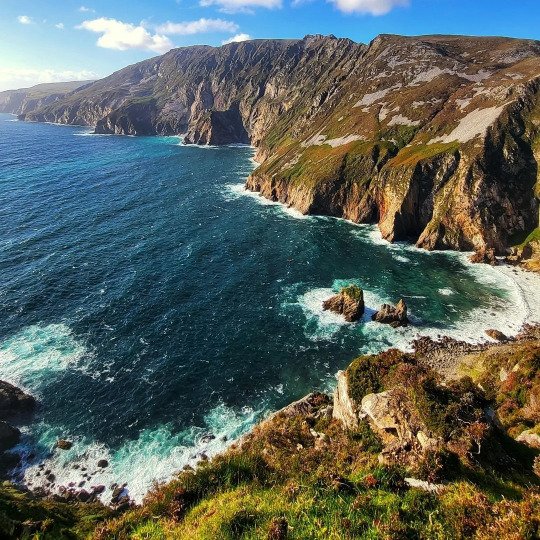
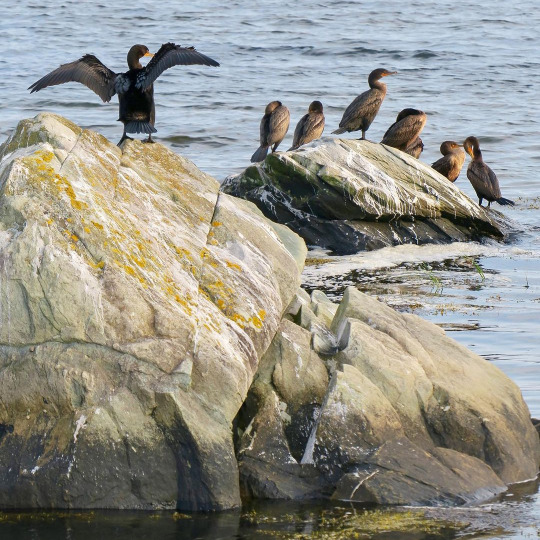

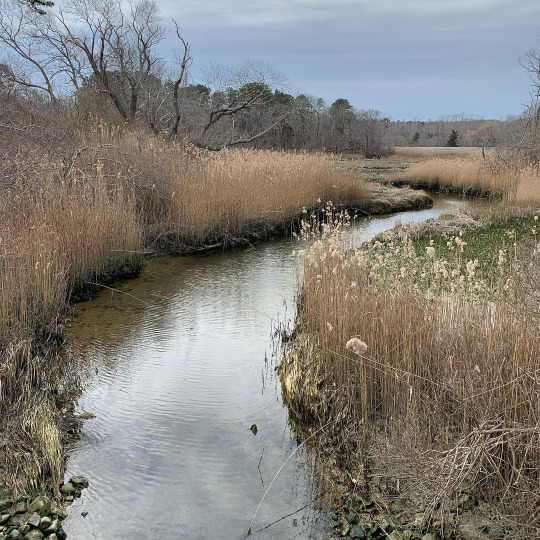
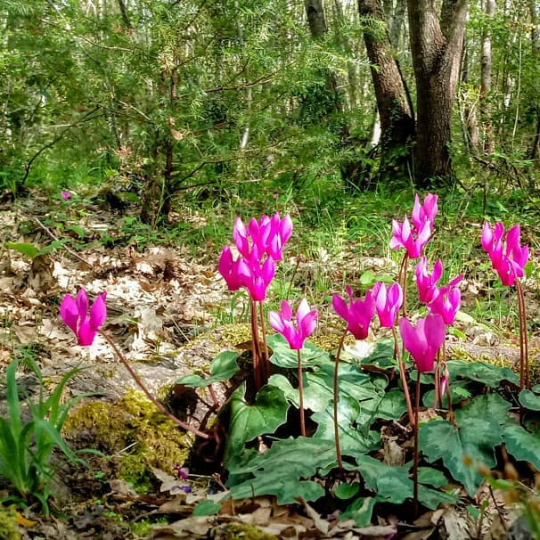
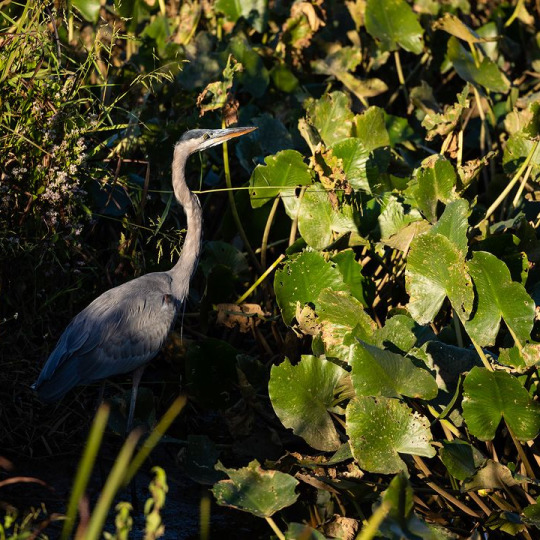

x x x x x x x x x
A lovely anon asked me to rank my favorite realms of Beleriand based on environment or other factors. I had a very hard time making a list but I wanted to make some boards to show some of my favorites based on various factors! I hope you see this, anon!
The ecology of Nevast, a coastal region of Western Beleriand where Turgon first made his home before Gondolin, is one of my favorites. The ecology is really fascinating to me! The combination of coastline, forests and wetlands (I adore the description of Linaewen with its outlines disappearing into the marshes)
I have a lot of headcanons about the environment and geology of Nevrast which I will make a seperate post for!
44 notes
·
View notes
Photo

Vinyamar by Alan Lee
728 notes
·
View notes
Text

scholars of the hither shore
80 notes
·
View notes
Photo

Fingon in Nevrast, by Marya Filatova.
77 notes
·
View notes
Text
Map of Beleriand

"The Silmarillion" - J.R.R. Tolkien
#book quotes#the silmarillion#jrr tolkien#map#beleriand#hithlum#anfauglith#lothlann#nevrast#falas#thargelion#estolad#himlad#taur nu fuin#dorthonion#lammoth#ossiriand#ered luin#bay of balar#arvernien#dorianth#nargothrond#dor lomin#mithrim
6 notes
·
View notes
Link
Chapters: 1/1
Fandom: The Silmarillion and other histories of Middle-Earth - J. R. R. Tolkien, TOLKIEN J. R. R. - Works & Related Fandoms
Rating: General Audiences
Warnings: No Archive Warnings Apply
Characters: Idril Celebrindal, Aredhel (Tolkien)
Additional Tags: Birds, Nevrast, Family, SWG Challenge (Tolkien)
Summary:
In Nevrast, Idril and her aunt Aredhel explore a reported natural phenomenon at Lake Linaewen together.
1 note
·
View note
Text
By some Nevrast was held to belong rather to Beleriand than to Hithlum, for it was a milder land, watered by the wet winds from the sea and sheltered from the cold north winds that blew over Hithlum.
"The Silmarillion" - J.R.R. Tolkien
0 notes
Text
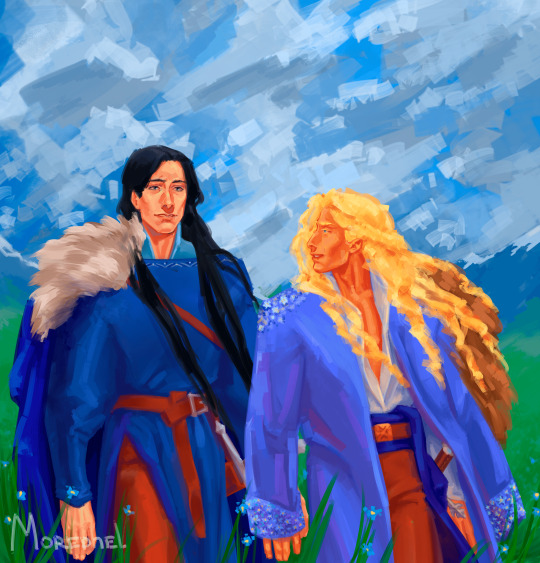
enjoy the silence
#my art#tolkien#silmarillion#art#fanart#elves#tolkien fanart#finrod#felagund#findarato#turgon#turukano#nolofinweans#arafinweans#Turgon son of Fingolfin left Nevrast where he dwelt#and sought out Finrod his friend upon the island of Tol Sirion#and they journeyed southward along the river#do you think they had a situationship
235 notes
·
View notes
Text
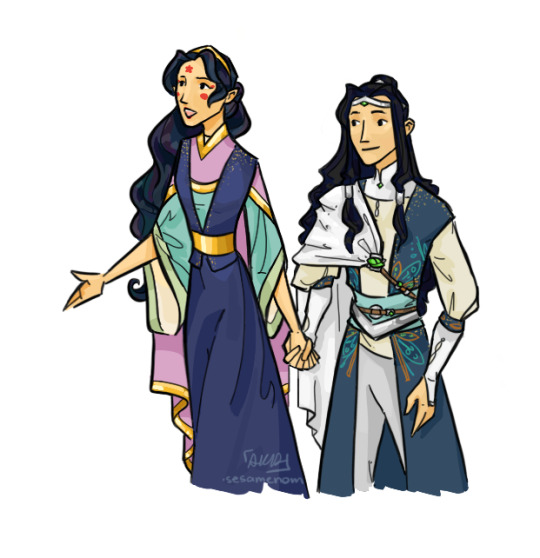
Aragorn and Arwen taking a walk through Minas Tirith (she's venting about how maglor disappeared again right before el&el were going to drag him to valinor)
(Aragorn has a very good fashion sense, if he was a Noldorin ambassador living in Numenor during the Late Elros Era. Arwen is also very stylish for early Doriathrim royalty. The rest of Gondor got used to it eventually.)
#lord of the rings#lotr#aragorn#arwen#behold aragorn's Choices#he has upgraded from dressing like a first age beorian to an early numenorean at least#complete with the turquoise and orange feather patterns elros likes for some reason#and the glove sleeve things and half cape that were last considered fashionable in nevrast. or by vardamir#his circlet is the inverted v style that shows up mostly in YT noldorin stuff#arwens crown thing is similar to one miriel used to wear#the starry shoulder trend was mostly a thing during the Great Journey but it reappeared briefly at the end of elros' reign#because of the earendil/seven stars thing#somehow aragorn manages to not-quite-pull-off a gondolin style coat w both elros patterns and starry shoulders#that's why he looked like an elven prince of old in lorien#his idea of formal wear just looks like hes a second age peredhel badly cosplaying turgon
233 notes
·
View notes
Text
One thing that I find interesting in thinking about the Finwean siblings is that Finrod and Maedhros exhibit pretty clear drives to take care of and protect their siblings (or younger cousins/nephews/other relatives or friends that they’ve adopted). But Fingon. Doesn’t do that. He’s not keeping a close eye on his younger siblings like Maedhros and his siblings aren’t recorded as coming to stay with him or confide in him in times of distress like Finrod. Aredhel doesn’t even visit him when she leaves Gondolin. She goes to see Celegorm and Curufin. Turgon, on the other hand, is pretty much defined by his protective nature (see: the entire concept of Gondolin). He’s the one fighting his way to Fingon’s side and risking everything to help him rather than the other way around. Aredhel goes to him for refuge after leaving Eol. I know that the loss of Argon and Gondolin’s secrecy make things a little more complicated and murky than the Arafinwean and Feanorian sibling relationships, but Fingon was never even noted as noticing that his brother and his followers just started disappearing. Turgon seems to have usurped the role of Eldest Brother in his family and I want to know WHY
#Finrod and maedhros just seem to be worrying about their younger siblings all the time#but not fingon#no record of him freaking out when nevrast is abandoned and he can’t find aredhel or turgon#I’m not saying it makes him a bad brother or anything I just find it interesting#silmarillion#silm#finrod#finrod felagund#turgon#maedhros#aredhel#fingon
602 notes
·
View notes
Text
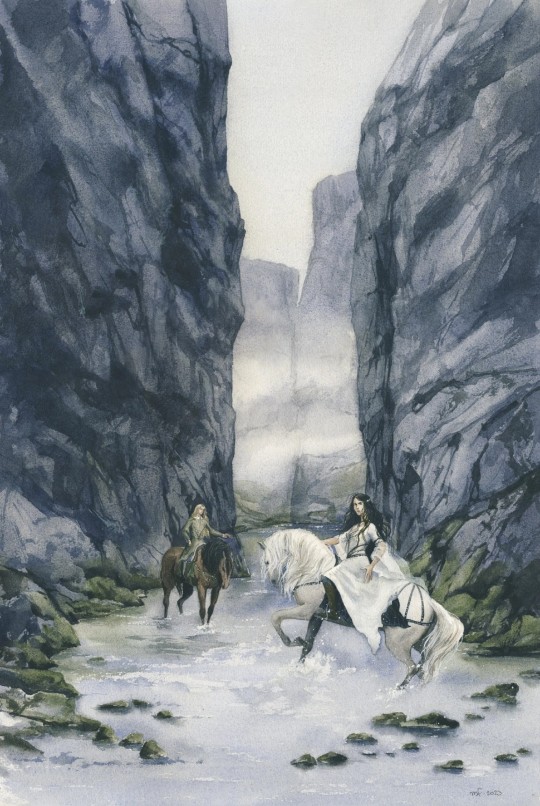
"Aredhel Ar-Feiniel, the White Lady of the Noldor, daughter of Fingolfin, dwelt in Nevrast with Turgon her brother, and she went with him to the Hidden Kingdom."
#aredhel#tolkien#silmarillion#watercolour#elves#watercolor#noldor#jrr tolkien#silm art#glorfindel#gondolin
833 notes
·
View notes
Text
Summer headcanons for the elves
Summer festivals post
Autumn, winter, spring
World Building Masterlist
Obviously I couldn’t go through each group or culture so please feel free to send one and I’ll tell my ideas for them! I’m going to do humans next. Feel free to request for outside of Beleriand too!
Note: trying to determine climate in Beleriand pre sun years is an endeavor for another post so this is primarily post the rising of the sun
I like to use these posts to explore a variety of short world building topics that I can then return to and elaborate on as well as working out some climate HCs
In Summer when the ocean is calm, young children of the Falathrim and the Sindar of Nevrast are given their first lessons in swimming and in living by and respecting the sea that is so central to their lives.
Many youth of the Falathrim learn to sail in the summer, often upon boats they have wrought themselves from wood and flaxen sails and ropes. Sindar children in Nevrast jump from lower cliffs into the water below. At the Havens of the Falas, many activities move outside; the weaving of sails and baskets, stonemasonry, cartography and more are done outside in the nicer weather. Open air forges, rooms where looms are kept and other such work places are constructed specifically so people can work in the mild weather, offering more company and conversation between them.
The Sindar of Mithrim travel frequently in the mild weather. Their homes are constructed for sheltering from harsh conditions and they prefer to live out in the open more than their kin in Doriath and even the Havens. They have two festivals of stars, one of which is held near the summer solstice. Constellations are used as landmarks for meeting places and families often congregate together.
Summer in Doriath is long and green. The movement in the forests is unceasing. There are many periods of heightened activity, song, artistic pursuits, and exploration. It is not uncommon to go without sleep around the solstice for many days. Court in Menengroth is often halted for these periods (I always remember that detail in the Narn too, about Thingol and Melian traveling together in the high summer.)
I headcanon that elves have a specific sense for growth; they can hear and feel for lack of a better phrasing, shoots of grass growing, flowers blooming, roots expanding out. Not all are equally attuned to it or aware of it and some can become extremely overwhelmed by it if their ability to process is affected.
In the Dorthonion highlands, the summers are dry and often dusty. It is common for elves and humans to cover their mouths with cloth in windier weather. Many of the elves retreat deeper into the pine forests where there is more reliable sources of water and shade. A lot of time is devoted to the crafts and projects that can be accomplished here, mainly weapons manufacturing from conifer wood and bark, building shelters, and cartography.
Ossiriand rarely reaches very cold temperatures, even in the winter. The climate is mild and the summers warm but not oppressive. The rivers and streams rarely dry and the green elves of Ossiriand rely heavily upon them for fishing, washing and play in those months. I’ve mentioned that the green elves of Ossiriand hold farmers markets, particularly in Southern Ossiriand. These are most common in the summer months.
#the silmarillion#beleriand#Sindar#mithrim#nevrast#falathrim#musing and meta#I hope these are ok!#if there’s any way I can improve please let me know!#northern Sindar
45 notes
·
View notes
Text
for real who is haunting the narrative more than míriel. the tengwar and the silmarils and a whole dynasty created because fëanor was maybe the only elf in aman to understand impermanence and loss enough to fear them. the noldorin crown passed on because finwë chose to spare his son another abandonment and died for it. gondolin and nargothrond and nevrast and lindon and hithlum established as realms and the silmaril coming back to valinor because indis had children with a widower. just something about míriel simultaneously being present everywhere in the story and also watching and recording it from outside unnoticed and without the power to ever intervene
#who is doing it like she's doing it....#the silmarillion#miriel therinde#finwëans#the professor's world#elves elves elves#meta + analysis#brought to you by me#every day i wake up + get on my little soapbox
237 notes
·
View notes
Text
Something I recently realized is there actually is a convincing explanation for Eol’s action at Gondolin without going for “well he’s just an evil sadistic rapist”
What we know is:
A good amount of Sindar elves in Nevrast came to love Turgon as their leader and proceeded to follow him to Gondolin
Here is the issue:
It’s very unlikely those Sindar elves who left for Gondolin would be allowed to tell their kin who left behind where they went.
From the rest of Sindar elves’ pov, their kin who lived in this Noldor prince’s realm just disappeared (Said Noldor prince’s brother was a famous kinslayer)
Thingol and his court must be notified of this mass disappearance of population.
They must tried to ask Fingolfin about it and Fingolfin would be like “well I don’t know where my son and daughter are either”
How much is the chance for Thingol-who-grounded-his-daughter-in-a-treehouse to believe that as an answer.
Likely over the years there were multiple speculations about what happened to the disappeared population.
When Eol married Aredhel, he must have asked her about the matter. (And Thingol would order him to. There was no chance for Thingol to not know his vassal & kinsman & best smith went crazy and married a Noldor princess.)
Aredhel would tell him those Sindar elves went willingly and were happy and well in Gondolin.
(I really think Eol believed it was okay to marry Aredhel because he believed she was different; she left her kinslaying family to travel alone after all.)
Then Aredhel and Maeglin left for Gondolin, and Eol went out to look for them; and out of everyone he could possibly meet he met Curufin
Who basically called him an ethnic slur
(You cannot convince me “dark elf” is a perfectly neutral word for Noldor to invent to call those who never seen the tree light. It’s so very hard to imagine Sindar elves who loved the star light and suffered from Morgoth to appreciate being associated with “dark”.)
When Eol really reached Gondolin, it was heavily suggested by the text that he would be dealt with in some way if he did not announce he was the husband of Aredhel. Which rather confirms Curufin’s words about facing death.
When he got taken into the city, he must find that the Sindar elves who disappeared really were living in Gondolin. (There was a line in the book about him silently observing the city.)
And immediately after he was offered the choice between staying and death.
Now this is really a perfect situation for misunderstanding:
How much is the chance for Eol to assume that Turgon forced all the Sindar elves in Nevrast to move to his city? Or WORSE, abducted and enslaved them to build this distinctive Noldor city?
Like, Eol was not allow to left even when he was vassal & kinsman of Thingol and husband of a Noldor princess. He was basically threatened with death to stay in the city.
How much is the chance for him to assume that all the other Sindar elves faced the same choice or worse, never a choice?
I do believe Turgon was a good king. He was the only one out there who won over loyalty of both Noldor and Sindar. Gondolin in Silmarillion (not the one in “Fall of Gondolin” where people called Meglin half orc) was a good city with a mixed ethnic population and some Sindar elves as lords.
He also condemned Feanorians and likely had complex feelings about his brother jumping into fight and starting murder for redhead bestie.
Out of all the Noldor princes he was likely the one who thoroughly abandoned the idea of building fair & glory kingdom. If there was any thought about that the idea was squished when Elenwe disappeared in icy water. Most of his time in Beleriand he was trying to protect and preserve, until he got overwhelmed by the sheer hopelessness of the situation.
If he and Thingol ever met post reembodiment they might even come to respect each other.
But during his meeting with Eol Turgon was doing absolutely nothing that was not escalating the situation
Which was sadly reasonable.
Turgon was being a Noldor king in front of a vassal of Thingol (who refuse to recognize his right to rule).
When accused of kinslaying and stealing land his reply was “but we Noldor protected you from Morgoth with our swords.” Yeah but the same swords killed Teleri and you all stole ships over dead bodies to come establish your kingdoms. The worse response out there. It’s like saying “yeah we killed your relatives and build kingdoms over your land but you’ll be dead anyway without our protection so suck it up.”
(I believe his real thought was “I regret ever coming and I hate my brother for being stupid and I would love to just stay in Tirion with my nice family.” But that’s not something he could say in this situation.)
Once those words were out there was no way for Eol to trust his words anymore. Out of political reason Turgon basically took the stand with the kinslayers he actually hated.
Actually it was reasonable for Eol to assume the worst. He might even assume even if he chose to stay, it would not only be a betrayal to Thingol and his heritage, but he would also be enthralled or even murdered anyway.
Then of course he would try to murder Maeglin. In his pov his son just decided to side with his maternal kinslayer family and serve the king who abducted and enslaved Sindar elves. How could he tolerate his son turning into murderer and slaver?
Of course he would stay silent about the poison and let Aredhel die. People did not stay in Gondolin willingly. She lied and covered for her evil brother.
Of course he would call Maeglin out for “forsaken your father and kin.” Because that was what he believed.
Of course he would curse Maeglin, because how could a half-Sindar be treated as a Noldor prince when the city abducted Sinder elves and forbid them to leave? It was not a curse; what he meant was Turgon would turn against Maeglin and executed him in the same way due to his Sindar blood.
Which was all very wrong. But I don’t think anyone could convince Eol that Turgon was not an evil colonist after the “stay or die” was out of the bag.
#tolkien#silmarillion#the silmarillion#silm#silmarillion headcanon#silm headcanon#silmarillion meta#silm meta#eol#turgon#gondolin
98 notes
·
View notes
Text
Belated birthday present for @that-angry-noldo <3 <3 I love u bestie
Finarfin and Eärwen had requested a six-day before anyone came to visit Finrod. No one had protested, of course; but Anairë, when she heard the news, had withdrawn into herself tightly, and requested curtly that she be the first visitor. They could not refuse her, second mother to their children as she had been, and Finarfin did not wish to; but he hoped, a little, that she would not still be angry when she knocked upon their door.
The six-day had been quiet. Finarfin had spent a great deal of time alone, trying to reconcile himself to this third loss of Aikanáro, to accept that bright little Findaráto was now quiet Finrod, to weave his son into the pattern of a life defined by solitude. But this last was not an arduous task, and smiling came easier to him than it had for many years.
He still found himself anxious when the seventh day came since Finrod’s Return and Anairë swept into their little cottage full of dignity. She did not seem angry; but something in her bearing made Finarfin half-reach for the spear that no longer hung at his shoulder.
No more fighting, he thought, please, no more, and ignored the voice in the back of his mind that sounded like Eönwë at his proudest, and said, Peace will not come simply because you wish for it.
“Hello, Arafinwë,” Anairë said, face softening a little as she looked at him. “Do not worry; I do not intend to cause harm.”
Intent rarely matters, thought Finarfin, but he returned the greeting and led her further into the cottage. As she and Eärwen embraced, he tapped gently upon the little glow that was Finrod in his mind. Anairë is here, he said, will you see her?
A little nod; and a moment later Finrod slipped into the room.
Anairë looked up. The hiss of breath that left her was so sharp Finarfin almost hastened towards the tea-kettle.
“Eäryonya,” she said, voice steady.
Sea’s-son, the name Anairë had used for all Eärwen’s boys, and they in turn had called her -
“Tarasamil,” said Finrod gently, and held out his hand. “Thank you for the keeping of my mother’s heart.”
“Someone needed to do it,” returned Anairë; but she took his hand and gripped it hard.
Eärwen flinched a little; Finarfin, as quietly as possible, slipped to her side. She put her head on his shoulder, and he felt something deep and cold within him unclench.
“Yes,” said Finrod. “Yes.”
“How fare my children?” said Anairë. “My husband?”
“I slept long and deep in Mandos, in dreams I half-remember; and only Turukáno came to me. He grieves,” said Finrod, “grieves for his city.”
“Does he grieve for those he killed in a land of peace?” said Anairë harshly. But she did not release his hand.
“Of course,” said Finrod, “but they no longer reside in Mandos.”
“Point to the kinslayer!” said Anairë. “But was he happy? In Endórë?”
“There was no unmarred joy in Beleriand,” said Finrod. “But by the deep pools and flowing rivers of Nevrast he was as peaceful as I have ever seen him. Irissë ran wild and free, and Findekáno took joy in his own fierceness and strength, and little Itarillë grew into great strength and wisdom. And your husband sought your counsel ever, even from far away.”
“Of course he did!” said Anairë. “I should not be glad to hear that my children won joy through bloodshed, and in bloodshed; but -”
She drew him into an embrace. Finarfin, watching carefully, was glad they had waited the six-day; Finrod’s hands were trembling and the set of his shoulders was not easy. But he did not flinch away.
“And you!” she said. “Was it worth it, Findaráto?”
“I am called Finrod now,” said Finrod into her shoulder, “and I paid for the joy I found many times over. I would not give it up now for even the unmarred bliss of Aman.”
“Yes,” said Anairë, “The price is marked upon your body,” and she moved her hand across the place just below Finrod’s left shoulder, where Finarfin knew there was a thick, ropy scar: muscle and bone cleaved by the claws of a wolf.
Finrod shuddered, and Anairë drew him closer.
“I am glad you are here, despite everything,” said Anairë, “and I am glad you were with my son. You kept his heart as I kept your mother’s, at least for a time; and I will not forget it.” She drew back. “And now I will make your father happy, and release you, and ask if there will be tea.”
“Yes,” said Finarfin, relieved beyond measure, and went into the kitchen to prepare.
60 notes
·
View notes
Text
Aredhel Ar-Feiniel, the White Lady of the Noldor, daughter of Fingolfin, dwelt in Nevrast with Turgon her brother, and she went with him to the Hidden Kingdom.
"The Silmarillion" - J.R.R. Tolkien
#book quotes#the silmarillion#jrr tolkien#white lady#hidden#kingdom#siblings#aredhel#aredhel al feiniel#noldor#white lady of the noldor#fingolfin#nevrast#turgon#hidden kingdom
1 note
·
View note